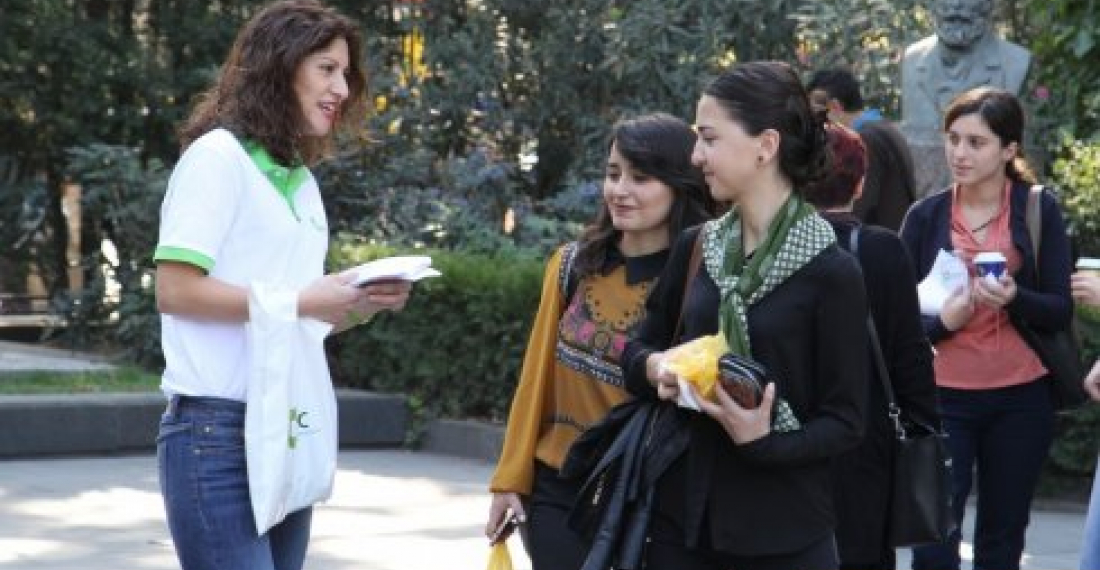Georgia's Central Elections Commission on Thursday continued with its campaign urging voters to go to the polling stations on Saturday and cast their ballots to one of the many parties and blocs contesting the election. Staff from the CEC were on Rustaveli avenue distributing leaflets as part of an information campaign - “Come to Vote”
The campaign took place from the square of Ivane Javakhishvili Tbilisi State University and ended at the surroundings of Rustaveli subway.The number of registered voters, according to the latest information from the Central Elections Commission is 3 513, 884.
The number of voters in each election districts varies from 41 364 in the smallest one to 53 480 in the largest one.
source: commonspace.eu
photo: "Come to vote' campaign in central Tbilisi (picture courtesy of the Central Elections Commission of Georgia).






